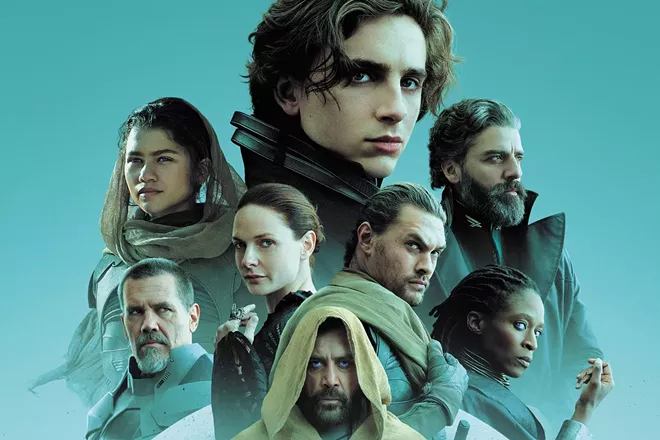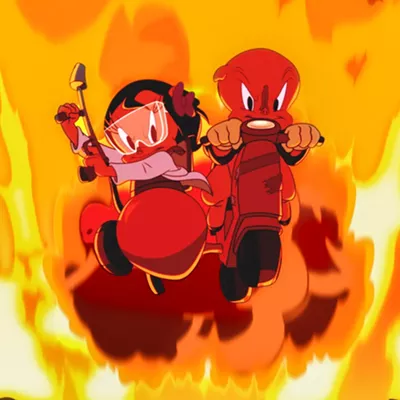It's tempting to give Denis Villeneuve's Dune (or Dune: Part One, as it's designated in the opening titles) a grade of "incomplete," since it deliberately adapts only about half of Frank Herbert's 1965 classic sci-fi novel. Pending Dune's performance at the box office and on HBO Max, there may be a Dune: Part Two, which may or may not successfully tackle the second half of the novel. For now, though, Dune can only be judged on its own merits, up to and including its surprisingly satisfying open-ended conclusion.
As a standalone film, Dune is still a monumental achievement, an ambitious and enveloping sci-fi blockbuster that does justice to Herbert's work and marks another step forward from Villeneuve's previous powerful sci-fi adaptations Arrival and Blade Runner 2049. Like those films, Dune is chilly and cerebral and may frustrate anyone expecting a modern Star Wars-style action movie. There aren't a lot of big action set pieces, and those battle sequences are never the movie's primary focus. Dune is a story about clashes between aristocratic dynasties and the devastating legacy of colonialism. The explosions are always secondary.
Set in the far future mainly on the desert planet Arrakis, Dune chronicles the ascension of Paul Atreides (Timothée Chalamet), son of Duke Leto Atreides (Oscar Isaac) and heir to House Atreides, one of the galaxy's most powerful families. House Atreides has been awarded stewardship of Arrakis, where they are to oversee the production of the substance known as spice, which is both the power source for interstellar travel and a hallucinogenic drug that extends human lifespans and expands consciousness.
This great honor is mostly a trap, though, an excuse for the galaxy's emperor to pit House Atreides against rival House Harkonnen, so that the emperor can eliminate potential rivals to his throne. Both Duke Leto and his son are more interested in forging an alliance with Arrakis' mysterious natives, the Fremen, who may possess unknown powers thanks to their long-term exposure to spice.
It's a lot of plot to digest, and that's without even mentioning the ancient religious order pledged by Paul's mother Jessica (Rebecca Ferguson), Paul's prophetic dreams and his potential to become your standard-issue sci-fi Chosen One, or, of course, those giant sandworms. In 1984, David Lynch attempted to cram Herbert's entire novel and all its world-building into a single feature film, and the result was an incomprehensible fever dream. Villeneuve and his co-writers Jon Spaihts and Eric Roth fare much better, and despite the massive amounts of exposition and the complex political, scientific and religious machinations, Dune is almost never difficult to follow.
But it's also aloof and clinical, with characters who often seem more like chess pieces than fully realized people, despite the strong, nuanced performances. In many ways, Paul is led by his emotions, whether his devotion to his parents or his visions of the beautiful Fremen named Chani (Zendaya), but his every action still carries the weight of destiny. Dune can come off like an adaptation of a history textbook from an alien civilization, which makes it fascinating but also slightly unreachable.
It helps that the movie looks stunning, with awe-inspiring visual effects, costumes and production design that capture the enormity of the galaxy-spanning empire and the variation within its society. Villeneuve leans into the Middle Eastern influences of Herbert's novel, but Dune never looks or sounds like it's emulating a single particular culture. It's truly and totally alien, while also concerned with basic human truths about the need for connection and the lure of power. The story may be incomplete, but the world of Dune is an immersive, fully realized wonder. ♦





















